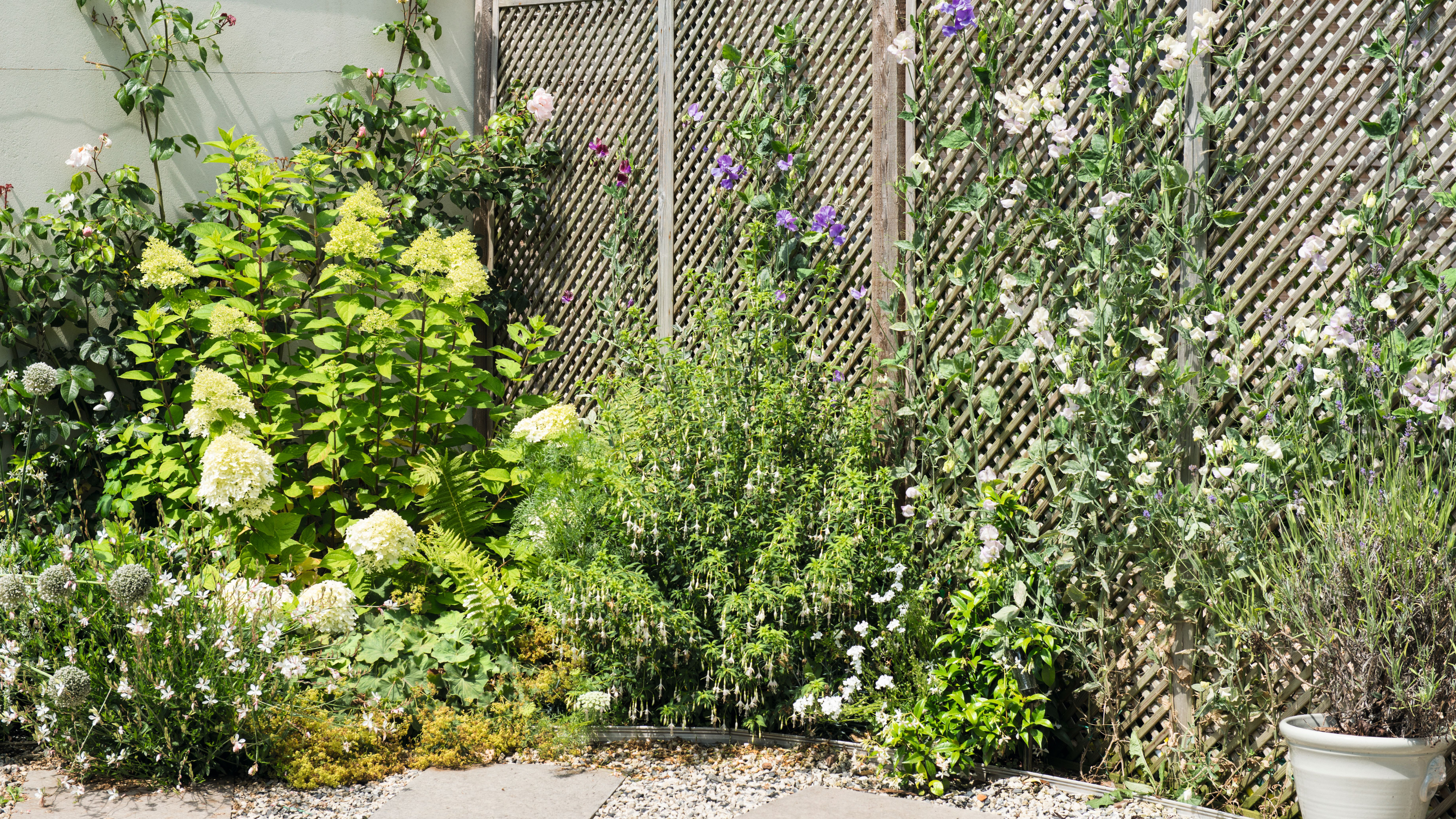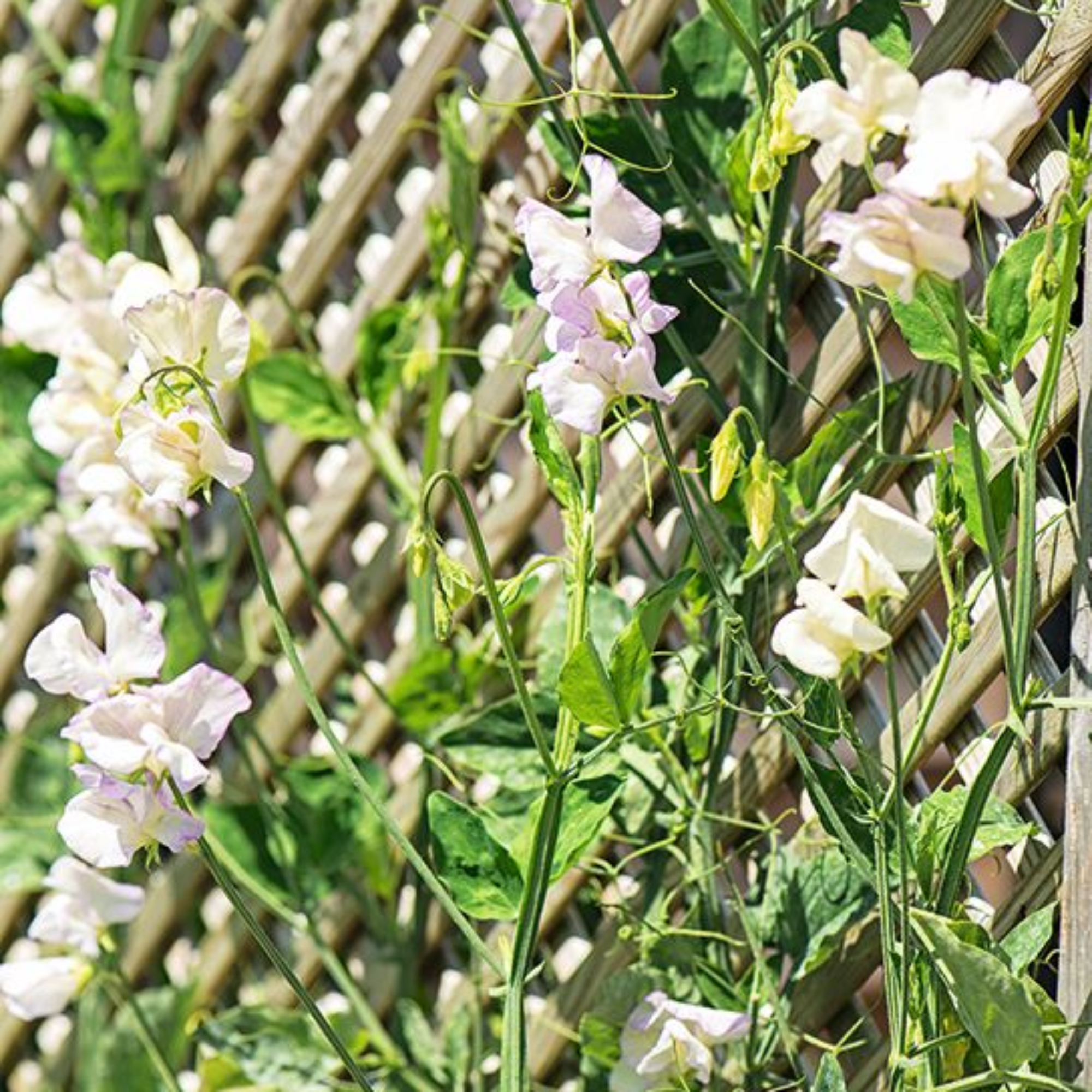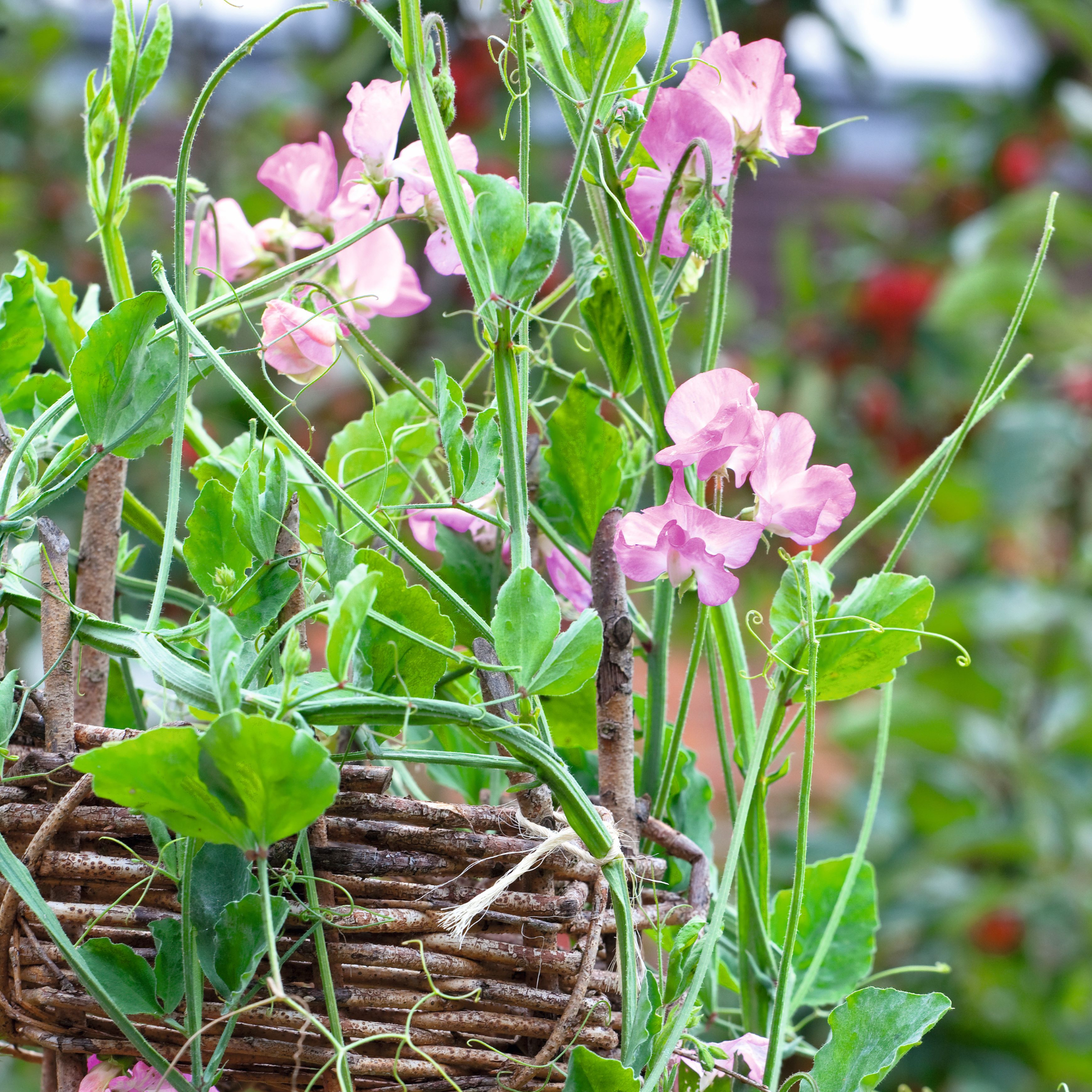How to take sweet pea cuttings for an endless supply of vibrant summertime blooms, according to gardening experts
Who wouldn't want a continuous supply of this gorgeous climber?


Knowing how to take sweet pea cuttings is your golden ticket to an endless supply of these beautiful summertime blooms, so it's no surprise that it's something that more people are looking to learn now.
While the best time to plant sweet peas is now, if you're already a proud owner of a sweet pea plant, you can go about multiplying your collection without even having to grow sweet peas from seed all over again.
When it comes to caring for sweet peas, there's recently been a lot of talk about pinching sweet peas to promote even bigger and lusher blooms ahead of summer. However, what a lot of people don't know is that while you're pinching out your plant, it's worth taking cuttings from it as well to propagate new plants that you can add to your garden or patio.

How to take sweet pea cuttings
'What's brilliant about sweet peas is how the cuttings from the plant can be used for exciting, new growth,' begins Chris Bonnett, founder of Gardening Express.
'Taking sweet pea cuttings is a rewarding way to propagate new plants and ensure a continuous supply of beautiful blooms. With proper care and attention, your cuttings should grow into healthy, thriving plants,' adds Fantastic Gardeners' plant and gardening expert, Petar Ivanov.

Petar Ivanov is a gardening and plant expert who has been working at Fantastic Gardeners for 8 years. As one of the company's top-performing experts, he now manages over 6 teams of gardeners, delivering stunning landscape results and fostering a deep connection with nature through his work.
What you'll need
- Clean, sharp scissors or pruning shears, like these at Amazon
- Small pots or containers, like these at B&Q
- Well-draining potting mix, like this one at B&Q
- Rooting hormone (optional)
Step-by-step guide
Luckily, learning how to take cuttings from sweet peas is a straightforward process and can be easily achieved regardless of whether you're a seasoned gardener or a newbie.
1. Select a young, healthy stem
'Choose healthy, disease-free sweet pea plants as the source for your cuttings and look for plants with vigorous growth and no signs of pests or damage,' advises Petar.
Sign up to our newsletter for style inspiration, real homes, project and garden advice and shopping know-how
'Select young, healthy stems for taking cuttings and look for stems that are still somewhat tender and not yet woody. Avoid stems that are flowering or too mature.'

2. Cut the stem
Using either a pair of clean, sharp scissors or pruning shears, go ahead and make one clean cut just below a leaf node.
'When removing the cuttings, use the marking point of around 5cm from the bottom of the stem and just short below the node to ensure the main plant isn't damaged,' advises Chris. The cuttings should ideally be around 4-6 inches (10-15cm) long.
'You'll notice over time that additional shoots will form from where the cuttings are removed which will allow the plant to blossom even greater,' he adds. This is exactly the process that occurs when pinching your sweet peas too, which is what makes it such an effective sweet pea care tip.

3. Immediately place the cuttings in water
Once you've made the cut, Chris stresses the importance of immediately placing the cutting in water so they become hydrated again before replanting them.
4. Plant the cuttings
'Fill small pots or containers with a well-draining potting mix, make a hole in the soil using a pencil or similar tool, and gently insert the cutting into the hole,' says Petar.
'Firm the soil around the cutting to hold it in place. After planting the cuttings, water them thoroughly to settle the soil, provide moisture and make sure the soil is evenly moist but not waterlogged.'
To add, Chris even goes on to suggest using a rooting hormone to help stimulate growth should you so desire.

5. Water the cuttings regularly
To ensure your sweet pea cuttings thrive as one of the fastest-growing climbing plants for your patio, it's important to keep on top of watering them well. Chris recommends watering them 'around three times a week so the newly planted sweet peas receive plenty of moisture.'
However, as with caring for any plant, you should be careful not to fall foul of the watering mistake of overwatering.
6. Monitor their growth
Now that you've successfully taken sweet pea cuttings, all you have to do now is play the waiting game.
'Place the pots or containers in a warm, bright location with indirect sunlight. Check the cuttings regularly for signs of growth and root development, which can take several weeks,' says Petar. 'Once the cuttings have developed a healthy root system, they can be transplanted into larger pots or directly into the garden.'

FAQs
Can you grow sweet peas from cuttings?
Yes, you can absolutely grow sweet peas from cuttings. Simply plant your cutting in a small pot or container filled with well-draining potting mix and ensure it's well-watered and cared for.
Then, you can indulge in having this beautiful climbing plant idea as part of your many summer patio ideas. We don't know about you, but this is what makes learning how to take sweet pea cuttings worth its while.

Jullia was Ideal Home’s Junior Writer from 2022-2024 and the Ideal Home Certified Expert in Training on Vacuums having spent over 60 hours testing different models. She’s always loved all things homes and interiors, graduating with a bachelor’s degree in Architectural Studies from the University of Nottingham where her love for writing blossomed following her internship at ArchDaily. Now focused on home tech and cleaning, Jullia works on writing features and explainers to help people make the most of their home appliance investments, putting the newest launches through their paces. When she isn’t writing, she loves exploring the city, coffee shop hopping, and losing hours to a cosy game or book.